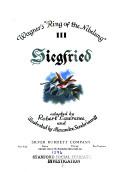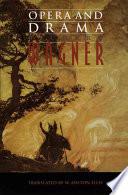Works
Famous Richard Wagner Quotes
“It's as if they avoid melodies, for fear of having perhaps stolen them from someone else.”
21 June 1880
Cosima Wagner's Diaries (1978)
Context: Music has taken a bad turn; these young people have no idea how to write a melody, they just give us shavings, which they dress up to look like a lion's mane and shake at us... It's as if they avoid melodies, for fear of having perhaps stolen them from someone else.
2 December 1877
Cosima Wagner's Diaries (1978)
Part II
Religion and Art (1880)
“I believe in God; and Mozart, and Beethoven as his only sons.”
Last words of the hero in "The Life's End of a German Musician in Paris" (1840), a short story written for the Gazette Musicale, as quoted in Autobiographical Sketch (1843) http://users.belgacom.net/wagnerlibrary/prose/wagauto.htm
23 September 1878
Cosima Wagner's Diaries (1978)
Richard Wagner Quotes about the world
Part III
Religion and Art (1880)
Part III
Religion and Art (1880)
Know Thyself (1881)
25 May 1877, quoting Richard's impressions of London
Cosima Wagner's Diaries (1978)
Know Thyself (1881)
Context: Clever though be the many thoughts expressed by mouth or pen about the invention of money and its enormous value as a civiliser, against such praises should be set the curse to which it has always been doomed in song and legend. If gold here figures as the demon strangling manhood's innocence, our greatest poet shews at last the goblin's game of paper money. The Nibelung's fateful ring become a pocket-book, might well complete the eerie picture of the spectral world-controller. By the advocates of our Progressive Civilisation this rulership is indeed regarded as a spiritual, nay, a moral power; for vanished Faith is now replaced by "Credit," that fiction of our mutual honesty kept upright by the most elaborate safeguards against loss and trickery. What comes to pass beneath the benedictions of this Credit we now are witnessing, and seem inclined to lay all blame upon the Jews. They certainly are virtuosi in an art which we but bungle: only, the coinage of money out of nil was invented by our Civilisation itself; or if the Jews are blamable for that, it is because our entire civilisation is a barbaro-judaic medley, in nowise a Christian creation.
Richard Wagner Quotes about feelings
Know Thyself (1881)
Selected Letters of Richard Wagner, translated by Stewart Spencer and Barry Millington (New York: W. W. Norton & Company, 1987), pp. 422-424 http://www.animal-rights-library.com/texts-c/wagner02.htm
“A moment of weakness comes, for everyone, but then he feels stupid, and listens to his good sense.”
Original: (de) "Die schwache Stunde kommt für jeden, da wird er dumm und lässt mit sich reden."
Source: Quotes from his operas, Die Meistersinger von Nürnberg, Hans Sachs, Act 3 Scene 3
Richard Wagner Quotes
21 June 1880
Cosima Wagner's Diaries (1978)
Context: Music has taken a bad turn; these young people have no idea how to write a melody, they just give us shavings, which they dress up to look like a lion's mane and shake at us... It's as if they avoid melodies, for fear of having perhaps stolen them from someone else.
Know Thyself (1881)
Context: What "Conservatives," "Liberals" and "Conservative-liberals," and finally "Democrats," "Socialists," or even "Social-democrats" etc., have lately uttered on the Jewish Question, must seem to us a trifle foolish; for none of these parties would think of testing that "Know thyself" upon themselves, not even the most indefinite and therefore the only one that styles itself in German, the "Progress"-party. There we see nothing but a clash of interests, whose object is common to all the disputants, common and ignoble: plainly the side most strongly organised, i. e. the most unscrupulous, will bear away the prize. With all our comprehensive State- and National-Economy, it would seem that we are victims to a dream now flattering, now terrifying, and finally asphyxiating: all are panting to awake therefrom; but it is the dream's peculiarity that, so long as it enmeshes us, we take it for real life, and fight against our wakening as though we fought with death. At last one crowning horror gives the tortured wretch the needful strength: he wakes, and what he held most real was but a figment of the dæmon of distraught mankind.
We who belong to none of all those parties, but seek our welfare solely in man's wakening to his simple hallowed dignity; we who are excluded from these parties as useless persons, and yet are sympathetically troubled for them, — we can only stand and watch the spasms of the dreamer, since no cry of ours can pierce to him. So let us save and tend and brace our best of forces, to bear a noble cordial to the sleeper when he wakes, as of himself he must at last.
Know Thyself (1881)
Context: What "Conservatives," "Liberals" and "Conservative-liberals," and finally "Democrats," "Socialists," or even "Social-democrats" etc., have lately uttered on the Jewish Question, must seem to us a trifle foolish; for none of these parties would think of testing that "Know thyself" upon themselves, not even the most indefinite and therefore the only one that styles itself in German, the "Progress"-party. There we see nothing but a clash of interests, whose object is common to all the disputants, common and ignoble: plainly the side most strongly organised, i. e. the most unscrupulous, will bear away the prize. With all our comprehensive State- and National-Economy, it would seem that we are victims to a dream now flattering, now terrifying, and finally asphyxiating: all are panting to awake therefrom; but it is the dream's peculiarity that, so long as it enmeshes us, we take it for real life, and fight against our wakening as though we fought with death. At last one crowning horror gives the tortured wretch the needful strength: he wakes, and what he held most real was but a figment of the dæmon of distraught mankind.
We who belong to none of all those parties, but seek our welfare solely in man's wakening to his simple hallowed dignity; we who are excluded from these parties as useless persons, and yet are sympathetically troubled for them, — we can only stand and watch the spasms of the dreamer, since no cry of ours can pierce to him. So let us save and tend and brace our best of forces, to bear a noble cordial to the sleeper when he wakes, as of himself he must at last.
Know Thyself (1881)
Context: What "Conservatives," "Liberals" and "Conservative-liberals," and finally "Democrats," "Socialists," or even "Social-democrats" etc., have lately uttered on the Jewish Question, must seem to us a trifle foolish; for none of these parties would think of testing that "Know thyself" upon themselves, not even the most indefinite and therefore the only one that styles itself in German, the "Progress"-party. There we see nothing but a clash of interests, whose object is common to all the disputants, common and ignoble: plainly the side most strongly organised, i. e. the most unscrupulous, will bear away the prize. With all our comprehensive State- and National-Economy, it would seem that we are victims to a dream now flattering, now terrifying, and finally asphyxiating: all are panting to awake therefrom; but it is the dream's peculiarity that, so long as it enmeshes us, we take it for real life, and fight against our wakening as though we fought with death. At last one crowning horror gives the tortured wretch the needful strength: he wakes, and what he held most real was but a figment of the dæmon of distraught mankind.
We who belong to none of all those parties, but seek our welfare solely in man's wakening to his simple hallowed dignity; we who are excluded from these parties as useless persons, and yet are sympathetically troubled for them, — we can only stand and watch the spasms of the dreamer, since no cry of ours can pierce to him. So let us save and tend and brace our best of forces, to bear a noble cordial to the sleeper when he wakes, as of himself he must at last.
Autobiographical Sketch (1843)
Context: The July Revolution took place; with one bound I became a revolutionist, and acquired the conviction that every decently active being ought to occupy himself with politics exclusively. I was only happy in the company of political writers, and I commenced an Overture upon a political theme. Thus was I minded, when I left school and went to the university: not, indeed, to devote myself to studying for any profession — for my musical career was now resolved on — but to attend lectures on philosophy and aesthetics. By this opportunity of improving my mind I profited as good as nothing, but gave myself up to all the excesses of student life; and that with such reckless levity, that they very soon revolted me.
Autobiographical Sketch (1843)
Context: The utter childishness of our provincial public's verdict upon any art-manifestation that may chance to make its first appearance in their own theatre — for they are only accustomed to witness performances of works already judged and accredited by the greater world outside — brought me to the decision, at no price to produce for the first time a largish work at a minor theatre. When, therefore, I felt again the instinctive need of undertaking a major work, I renounced all idea of obtaining a speedy representation of it in my immediate neighbourhood: I fixed my mind upon some theatre of first rank, that would some day produce it, and troubled myself but little as to where and when that theatre would be found.
Autobiographical Sketch (1843)
Autobiographical Sketch (1843)
Part II
Religion and Art (1880)
“Certain things in Mozart will and can never be excelled.”
26 February 1878
Cosima Wagner's Diaries (1978)
Judaism in Music (1850)
Original: (de) "Glaubt mir, des Menschen wahrster Wahn
wird ihm im Traume aufgetan:
all' Dichtkunst und Poeterei
ist nichts als Wahrtraumdeuterei."
Source: Quotes from his operas, Die Meistersinger von Nürnberg, Hans Sachs, Act 3, Scene 2
Quotes from his operas, Die Meistersinger von Nürnberg, Hans Sachs, Act 3, Scene 1
Original: (de) "... in Flucht geschlagen,
wähnt er zu jagen;
hört nicht sein eigen Schmerzgekreisch,
wenn er sich wühlt ins eig'ne Fleisch,
wähnt Lust sich zu erzeigen!"
Quotes from his operas, Die Meistersinger von Nürnberg, Hans Sachs, Act 2, Scene 4
Original: (de) Mein Kind, für den ist alles verloren,
und Meister wird der in keinem Land;
denn wer als Meister geboren,
der hat unter Meistern den schlimmsten Stand.
Original: (de) Des Ritters Lied und Weise,
sie fand ich neu, doch nicht verwirrt;
verliess er unsre Gleise,
schritt er doch fest und unbeirrt.
Wollt ihr nach Regeln messen,
was nicht nach eurer Regeln Lauf,
der eignen Spur vergessen,
sucht davon erst die Regeln auf!
Source: Quotes from his operas, Die Meistersinger von Nürnberg, Hans Sachs, Act 1, Scene 3
Original: (de) Gab mir die Mutter Muth,
nicht mag ich ihr doch danken,
daß deiner List sie erlag:
frühalt, fahl und bleich,
hass' ich die Frohen,
freue mich nie!
Source: Quotes from his operas, Götterdämmerung, Hagen, Act 2, Scene 1
“No clever person can help here; I see that clearly. Here, only stupidity can help the stupid one!”
Original: (de) "Hier hilft kein Kluger, das seh’ ich klar: hier hilft dem Dummen die Dummheit allein!"
Source: Quotes from his operas, Siegfried, Mime, the dwarf (and master metal-smith), Act 1, Scene 3
Quotes from his operas, Siegfried, Siegfried, forging his sword, Act 1, Scene 3
Original: (de) "Was der Meister nicht kann,
vermöcht’ es der Knabe,
hätt’ er ihm immer gehorcht
Jetzt mach’ dich fort, misch’ dich nicht drein:
sonst fällst du mir mit in’s Feuer!"
Original: (de) "Zum Ekel find' ich ewig nur mich in Allem was ich erwirke; das And're, das ich ersehne, das And're erseh' ich nie: denn selbst muß der Freie sich schaffen; Knechte erknet' ich mir nur."
Source: Quotes from his operas, Die Walküre, Wotan, Act 2, Scene 2
“I, who rule by means of contracts, am now slave to my contracts.”
Original: (de) Der durch Verträge ich Herr, den Verträgen bin ich nun Knecht.
Source: Quotes from his operas, Die Walküre, Wotan (ruler of the gods), Act 2, Scene 2
“Are you afraid of a song, of a picture?”
Senta, to Erik
Quotes from his operas, Der fliegende Holländer
Original: (de) "Fürchtest du ein Lied, ein Bild?"



